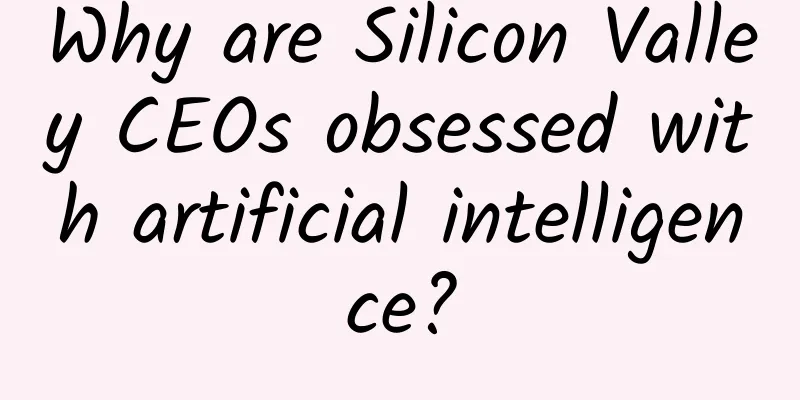Why are Silicon Valley CEOs obsessed with artificial intelligence?

|
Jarvis, the artificial intelligence butler in the movie "Iron Man". Today, Facebook has grown from a campus photo-sharing community to a Silicon Valley tech giant with a market value of more than $300 billion. Marriage, birth of a daughter, charity, every piece of news can make founder Zuckerberg headline news. This time, it was the official announcement of the creation of an artificial intelligence butler. This is a cool idea. On January 3, Zuckerberg revealed on his Facebook that his New Year's goal for 2016 is to create an artificial intelligence butler, just like "Jarvis" in the "Iron Man" movie. Zuckerberg's move was not a whim. As early as 2014, he personally invested in the artificial intelligence company Vicarious. Artificial intelligence is also one of Facebook's three long-term technology bets. Facebook also bets heavily on virtual reality technology and is developing technology to provide Internet services to communities with low Internet service levels around the world. "Artificial intelligence can improve the IQ of Internet services, making them more valuable to users." Zuckerberg once clearly answered why he wanted to enter the field of artificial intelligence. Artificial intelligence is hotThe industry is optimistic about the prospects of artificial intelligence. As of 2004, more than $2 billion of venture capital has flowed into products and services based on cognitive technology research, and more than 100 related companies have been acquired by Internet giants. Not only Facebook, but Google's investment in recent years has also been mainly concentrated in this field, acquiring a total of 8 robotics companies and 1 machine learning company. Google recently launched the open source tool TensorFlow, intending to share knowledge and experience related to artificial intelligence with the public. According to information disclosed by Google, TensorFlow is a machine learning system that can be used from smartphones to large data center servers. Google is not the only company that has open-sourced AI systems. According to Bloomberg, Facebook has open-sourced its own deep learning system, Torch. Google's AI startup Deep Mind uses Facebook's system. Google invested $400 million in the startup, and DeepMind CEO Demis Hassabis revealed that their secret team may be able to crack the game of Go. As a competitor, IBM has also made great strides in the field of artificial intelligence. Founded in January 2014, the Watson project is an independent business with a $1 billion investment from IBM, providing services including speech, language understanding, image recognition and sentiment analysis. IBM calls its approach to artificial intelligence "cognitive computing." It is generally believed that this is a new business that IBM has reborn from the ashes after the decline of its personal computer business and the traditional IT services it relied on. In early 2011, Watson participated in the American TV quiz show "The Greatest Show Ever". With its amazing language comprehension ability, it defeated two human game champions and became famous. Currently, Watson's main applications are concentrated in the fields of medicine and medicine. In April last year, IBM announced its cooperation with Apple, Johnson & Johnson and medical device company Medtronic. The goal is to be a medical system intermediary, so that individuals and hospitals can obtain information through IBM and optimize the entire data collection, analysis and feedback service. IBM's series of announcements also clearly show its long-term goal: to make Watson the operating system for the emerging artificial intelligence applications today. Research and develop new technologies and put them into use quicklyUnlike Google and IBM, Facebook as a social network seems to have no reason to be interested in artificial intelligence. But the fact is that two years ago, Zuckerberg began to talk about his artificial intelligence plan and began to establish his artificial intelligence research laboratory (FAIR). At present, Facebook has established three artificial intelligence research centers, located in Paris, France, New York, USA, and Menlo Park, California, each laboratory has 40-50 researchers. It is mainly used to tap artificial intelligence talents, such as experts in image processing, text analysis, speech recognition and implementation of strategic games, and build artificial intelligence machines that can understand massive data. Although Facebook started behind Google and Microsoft in the development of artificial intelligence, it has achieved remarkable results. One of its major advantages is that newly developed technologies can be quickly put into use. In June last year, Facebook released a new algorithm developed by its artificial intelligence research lab, claiming that it can infer who a person is based on information such as clothing, hairstyle, posture and body shape, with a success rate of up to 83%. At the same time, Facebook immediately applied it to the newly launched private sharing application "Moments", which uses facial recognition technology to classify photos and share them with specific friends. At the end of the year, Facebook Messenger launched the Photo Magic feature, which can control the photo collection in the user's mobile phone. When the person in the photo is identified as the user's friend, it will automatically send a prompt to ask the user whether to send the picture to the friend. The direct result is that the number of pictures shared by Facebook Messenger, which has 700 million users, has reached 9.5 billion per month, and the growth of picture sending has exceeded that of text. In addition to the development of the face recognition system, Facebook has also developed Moneypenny, a voice assistant that is comparable to Apple's Siri and Google's Cortana. In early 2015, Facebook acquired the voice command startup Wit.AI and later established a language technology department. Soon after, Facebook announced that it would begin testing the voice transcription function on Messenger. Users can transcribe the received voice messages into text for reading. The Information reported that Facebook had been developing an AI assistant project codenamed "Moneypenny" (M) since July 2015 and had already started internal testing. David Markus, head of Facebook Messenger, said: "M is a personal digital assistant. Compared with other AI-based services on the market, M can really do shopping for you, send gifts to your loved ones, book tours, arrange trips, etc." From Deep Face AI to M, it is not difficult to see that Facebook's layout in the field of artificial intelligence is mainly centered around the social relationships and social information of its users. Parikh, Facebook's vice president of engineering, said that the world is generating more and more data every day, and traditional models and systems can no longer adapt to the expansion of data volume, so artificial intelligence needs to come on stage. |
<<: How many sparks will occur when HTML5 meets Native?
>>: Goldman Sachs: Virtual reality market could reach $80 billion in 10 years
Recommend
Guangdiantong optimization tips and precautions
Guangdiantong is a DSP advertisement based on Ten...
How does it feel to watch the big screen at the station on your mobile phone? Experience the new version of 12306
We no longer need to go to the train station to c...
Chairman of BAIC: There is no point in having an electric car with a long range, 300 kilometers is enough
The vigorous development of new energy vehicles i...
Analysis of Huang Daozhu's Taobao virtual sideline project
Analysis of Huang Daozhu's Taobao virtual sid...
Case Analysis: How to impact the Weibo topic list with 0 budget and link up 30 apps?
If you are working on new media in an APP, then c...
The pictures downloaded from WeChat cannot be Photoshopped! Teach you how to make PS support WebP
Many friends have found that the pictures dow...
Will the lake on the "Roof of the World" expand by 50%? More water is not necessarily a good thing...|Expo Daily
Lakes on the Qinghai-Tibet Plateau are expected t...
What are the tasks that Zhaoqing SEO personnel have to do every day?
Many people say that SEO is no longer effective, ...
Feeding on human blood, outbreaks in many countries! Beware of this bug...
Faded from people's sight for many years Bed ...
Xiaomi phones can improve the security and fluency of their phones through these settings.
1. Close the negative one screen and search box W...
Bing launches "Menu Favorites" feature on mobile search client
According to foreign media reports, if you are lo...
Why are mosaics usually placed around the eyes? Is it difficult to identify if it is placed around the eyes?
You must have noticed that in some cases where yo...
Evergrande formally sued Jia Yueting, saying that Jia Yueting forcibly drove out the cashier and refused financial review
On November 7, Evergrande Health stated that it h...









